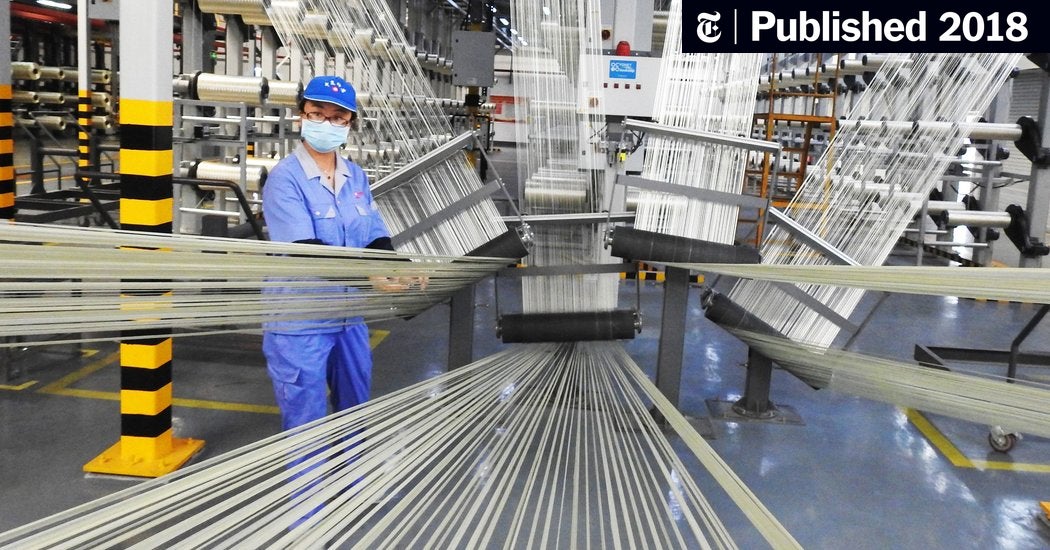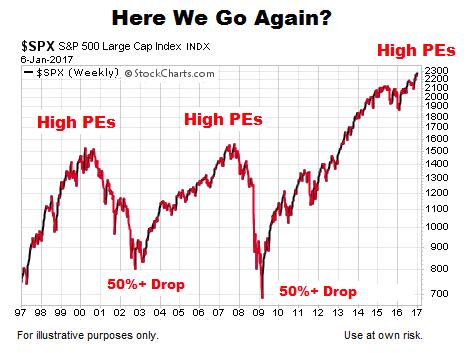Analyzing China's Economic Vulnerability To Increased Tariffs

Table of Contents
Impact on Chinese Exports
Increased tariffs represent a significant threat to China's export-driven economy. The imposition of higher tariffs on Chinese goods directly impacts global demand and market competitiveness.
Reduced Global Demand
Increased tariffs on Chinese goods lead to higher prices in importing countries, directly reducing demand. This translates into tangible consequences for the Chinese economy:
- Decreased consumer spending on Chinese products in major markets like the US and EU. Higher prices make Chinese goods less attractive to consumers, leading to a decline in sales volumes. This effect is amplified by the substitution effect, as consumers may switch to cheaper alternatives.
- Shift in consumer preference towards domestically produced goods or alternatives from other countries. This shift in consumer behavior further erodes the market share of Chinese exporters. This is especially true in industries where there are readily available substitutes from other nations with lower tariffs.
- Potential for significant job losses in export-oriented industries. Reduced demand inevitably leads to lower production levels, factory closures, and job losses, particularly in labor-intensive sectors heavily reliant on exports.
Loss of Market Share
Higher prices resulting from increased tariffs make Chinese goods less competitive in the global marketplace, allowing other countries to gain market share. This poses a long-term threat to China's economic growth:
- Increased competition from countries with lower tariff barriers or production costs. Countries like Vietnam and Bangladesh have become increasingly attractive alternatives for manufacturers and importers seeking to avoid higher tariffs on Chinese goods.
- Difficulty in maintaining existing market share and attracting new customers. The increased costs associated with tariffs make it harder for Chinese businesses to compete on price, hindering their ability to expand into new markets.
- Potential long-term damage to brand reputation and market positioning. If Chinese goods are consistently perceived as more expensive and less competitive, it could harm their long-term brand reputation and market standing.
Disruption of Global Supply Chains
China's integration into global supply chains makes it particularly vulnerable to the disruptive effects of increased tariffs. The ripple effects can be far-reaching and long-lasting.
Increased Production Costs
Tariffs increase the cost of intermediate goods and raw materials imported for manufacturing in China. This increased cost of production ultimately affects the price of final goods:
- Higher input costs translate into higher prices for final goods, further reducing competitiveness. This puts additional pressure on already strained margins for Chinese exporters.
- Potential for reduced profit margins and decreased investment in production. The squeezing of profit margins discourages investment in upgrading factories, technology, and research and development, ultimately impacting long-term competitiveness.
- Risk of supply chain disruptions due to reliance on specific imported components. Disruptions in the supply of essential components can halt production, leading to significant losses and delays.
Retaliatory Tariffs
The imposition of tariffs can trigger retaliatory measures from China, leading to further disruption of global supply chains:
- Impact on global trade and economic growth. Escalating trade tensions negatively affect global trade flows and overall economic growth.
- Increased uncertainty and instability in international markets. Trade wars create uncertainty and instability, making it difficult for businesses to plan for the future.
- Potential for escalating trade tensions and conflicts. A tit-for-tat response can lead to a full-blown trade war, with severe consequences for the global economy.
Impact on Domestic Investment and Growth
The effects of increased tariffs extend beyond exports and supply chains; they significantly impact domestic investment and overall economic growth in China.
Reduced Foreign Direct Investment (FDI)
The uncertainty created by trade wars can deter foreign investment in China:
- Reduced capital inflow hampers economic expansion and modernization efforts. A decline in FDI slows economic growth, hindering efforts to upgrade infrastructure and technology.
- Negative impact on job creation and technological advancement. Reduced FDI limits opportunities for job creation and the transfer of advanced technologies.
- Weakening of the Chinese currency, impacting purchasing power. A weakening currency can increase the cost of imports and reduce the purchasing power of Chinese consumers.
Slowdown in Economic Growth
The combined effects of reduced exports, disrupted supply chains, and decreased FDI can lead to a significant slowdown in China's economic growth rate:
- Potential for social and political instability. Economic slowdowns can lead to social unrest and political instability.
- Increased pressure on the Chinese government to implement economic reforms. The government may be forced to implement significant economic reforms to stimulate growth and address the challenges posed by tariffs.
- Reassessment of China’s long-term economic strategy. China may need to reassess its long-term economic strategy to reduce its reliance on exports and diversify its economy.
Conclusion
Increased tariffs pose a significant threat to China's economic stability. The vulnerability stems from its export-oriented growth model and intricate global supply chains. Reduced export demand, disrupted supply chains, and decreased foreign investment all contribute to a potential slowdown in economic growth. Understanding China's economic vulnerability to tariffs is crucial for policymakers, businesses, and investors alike. Further research and proactive strategies are needed to mitigate the risks and adapt to the evolving global trade landscape. A comprehensive analysis of China's economic vulnerability to tariffs is therefore essential for navigating the complexities of international trade and ensuring long-term economic prosperity. Ignoring the potential impact of increased tariffs on China's economy could have severe global ramifications. Therefore, continued monitoring and strategic planning around China's economic vulnerability to tariffs and related trade policies are crucial.

Featured Posts
-
 How Tik Tok Users Are Finding Ways Around Trump Era Tariffs
Apr 22, 2025
How Tik Tok Users Are Finding Ways Around Trump Era Tariffs
Apr 22, 2025 -
 Will The Next Conclave Define Pope Franciss Legacy
Apr 22, 2025
Will The Next Conclave Define Pope Franciss Legacy
Apr 22, 2025 -
 Exec Office365 Breach Millions Made Feds Say
Apr 22, 2025
Exec Office365 Breach Millions Made Feds Say
Apr 22, 2025 -
 Trumps Trade Offensive And The Future Of Us Financial Primacy
Apr 22, 2025
Trumps Trade Offensive And The Future Of Us Financial Primacy
Apr 22, 2025 -
 Why Current Stock Market Valuations Are Not A Cause For Alarm Bof A
Apr 22, 2025
Why Current Stock Market Valuations Are Not A Cause For Alarm Bof A
Apr 22, 2025
